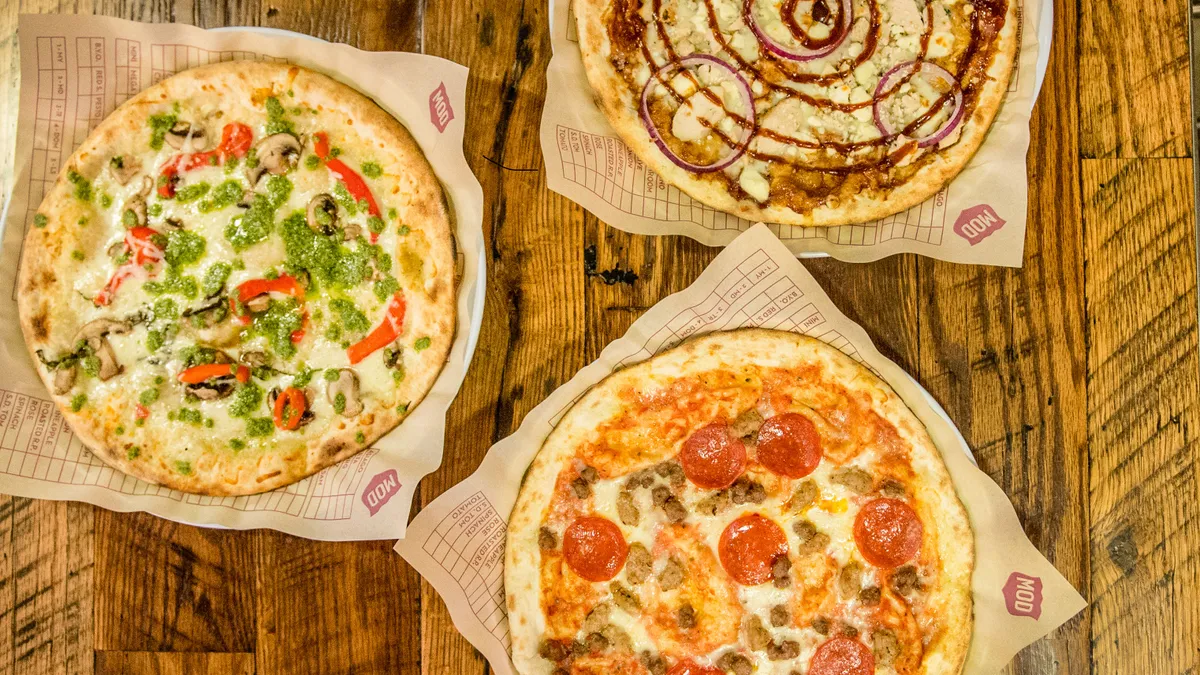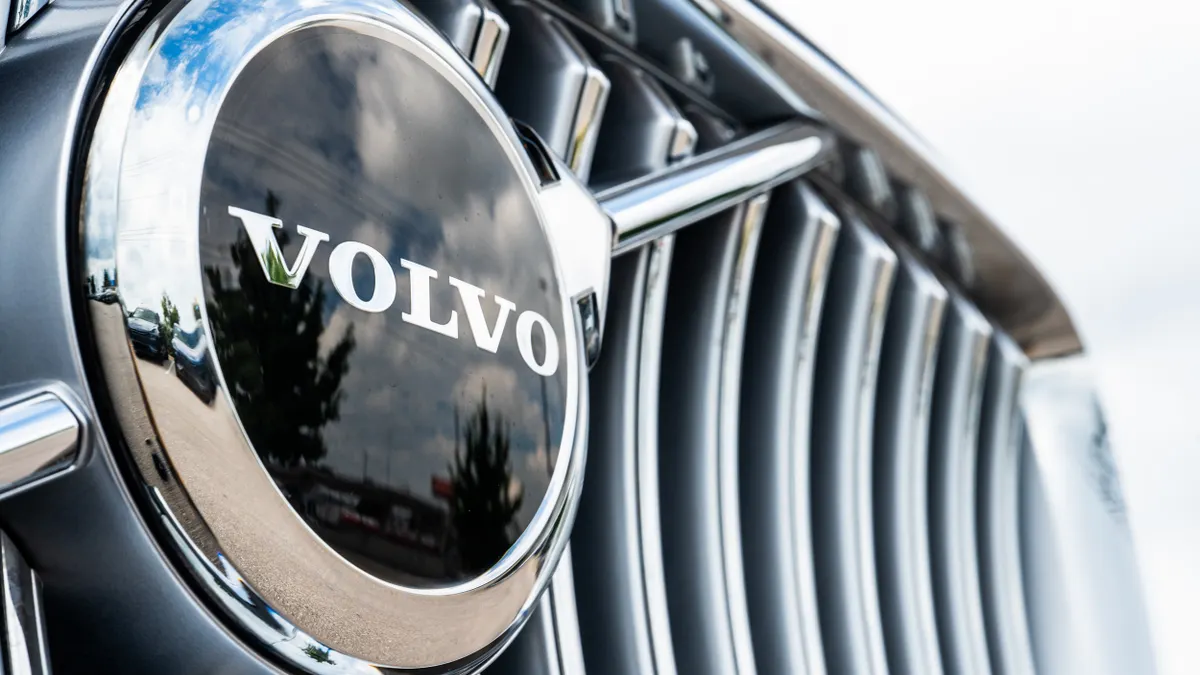Despite the ominous outlook for the restaurant industry amid the coronavirus pandemic, two fast-casual chains, Potbelly and MOD Pizza, hired new CFOs on Monday.
Chicago-based sandwich purveyor Potbelly Corp. appointed Steven Cirulis as CFO and chief strategy officer, while Seattle-based MOD Super-Fast Pizza Holdings named Starbucks veteran Josh Guenser CFO.
In their announcements, MOD and Potbelly referenced the "unprecedented" times in the restaurant industry and said their new CFOs would be integral in helping the companies weather the storm.
Cirulis previously worked in global corporate strategy at McDonald’s and, most recently, Panera Bread. He joined Potbelly in a strategic planning, finance and analytical consulting role in December, when then-CFO Thomas Fitzgerald left to serve as CFO of Planet Fitness, and Potbelly’s CEO Alan Johnson temporarily assumed finance duties.
Citing a quiet period in lieu of approaching Q1 earnings, Potbelly declined to comment further than what's in the announcement.
At MOD Pizza, founded by husband and wife duo Scott and Ally Svenson in 2008, Guenser arrives following over ten years at Starbucks, where he most recently served as senior vice president of finance for the Americas group.
Guenser will oversee MOD's financial operations, fiscal responsibility, reporting and accounting. He replaces Bob Barton, who served as CFO from April 2016 to September 2019. MOD has been “on the hunt for just the right replacement since then,” a spokesperson told CFO Dive in an email.
"It’s been busy," Guenser told CFO Dive in an interview Wednesday. "In addition to what would be your normal onboarding process, learning about a new company and getting to know the team and business, there’s a lot to learn."
"This is probably the most unique time to transition to a job."

Josh Guenser
CFO, MOD Pizza
Guenser says all CFOs, even if they aren't just starting, have their hands full learning to deal with the crisis. "There’s lots to absorb, with what's going on in the broader economy, consumer behavior and what that all means for the business," he said. "This is probably the most unique time to transition to a job."
In Guenser’s experience with Starbucks, and in his short time with MOD, he's seen both companies embrace Zoom and Microsoft Teams as ways of keeping management and executives in touch on a daily basis. "My job transition has consisted of me unplugging my Starbucks computer and starting my MOD computer, at my desk, in my home office," he said.
As far as how to tackle making a plan for the future while still getting to know the company, Guenser credits the team he is tasked with leading. "There’s already a lot of great work happening on the management side during this time. I’m really leaning on my team’s knowledge."
Guenser says executives at MOD are in constant contact with other industry leaders and peers in an effort to understand how the shape of the virus might look for a fast-casual restaurant.
"The challenge is understanding how long this could last, how significant it could be, putting together various financial models of how it could look, and put us in the best possible spot, all that considered," he said.
Guenser is also focused on managing cash as best he can, and asking how to continue driving sales, and how to create new sales-driving opportunities. "We’re evaluating everything across the board, including managing costs," he said. "We’ve had to make some tough decisions in evaluating all the elements to make sure we’re coming out of this in a good place."
Though the basic structure of the two companies are different, Guenser is nonetheless taking cues from his decade at Starbucks to guide his next steps at MOD.
"I'd say there are a lot of similarities from a standpoint of rapid growth in the restaurant space," he said. "From how we utilize digital capabilities to attract customers into the stores, how we retain them, and how we think through our different product offerings. MOD's tactics are very similar to Starbucks's. Especially on the finance side; most metrics and business evaluations are very similar."
At the beginning of April, Jack Hartung, CFO of fast-casual giant Chipotle Mexican Grill, said the chain "can get through for many months, or even a year, at these kinds of depressed sales levels."
This confidence hinges on Chipotle’s dynamic mastery of the takeout and delivery model, where reliance in foot traffic pales in comparison to reliance on ordering via app or picking up. Can MOD Pizza stave off calamity similarly?
"What I'd say is I think there’s an opportunity for a business like MOD to be successful during these times," Guenser said. "We can leverage curbside pickup, which we deployed quickly to get customers their pizza without them having to come in."
MOD also augmented its in-store service model to make it safe as possible, while still letting customers come in and pick up, Guenser said.
"Helping out where you can will help companies survive in the long run. We’re in a crisis across the country where companies can lean into their purpose of helping people. And that will make them stronger."

Josh Guenser
CFO, MOD Pizza
"I think MOD, given our product, has a particular opportunity to capitalize on [delivery] as well," he said. "The channel through which we service customers does better than many traditional sit-down restaurants, though [sit-down customers] are a big part of our business, too."
Guenser declined to compare MOD to Chipotle, but said MOD is dependent on foot traffic, even if not to the same extent as other sit-down chains. "We’re certainly impacted, and if this ends up being a much longer period of social distancing, we must continue leaning into alternate channels," he said.
Guenser is also encouraged by MOD’s purpose-driven focus, and its commitment to treating its employees and communities well.
"That's a big part of what we do, and how other companies go about [supporting their communities] is also critically important," he said. "Helping out where you can will help companies survive in the long run. We’re in a crisis across the country where companies can lean into their purpose of helping people. And that will make them stronger."






















